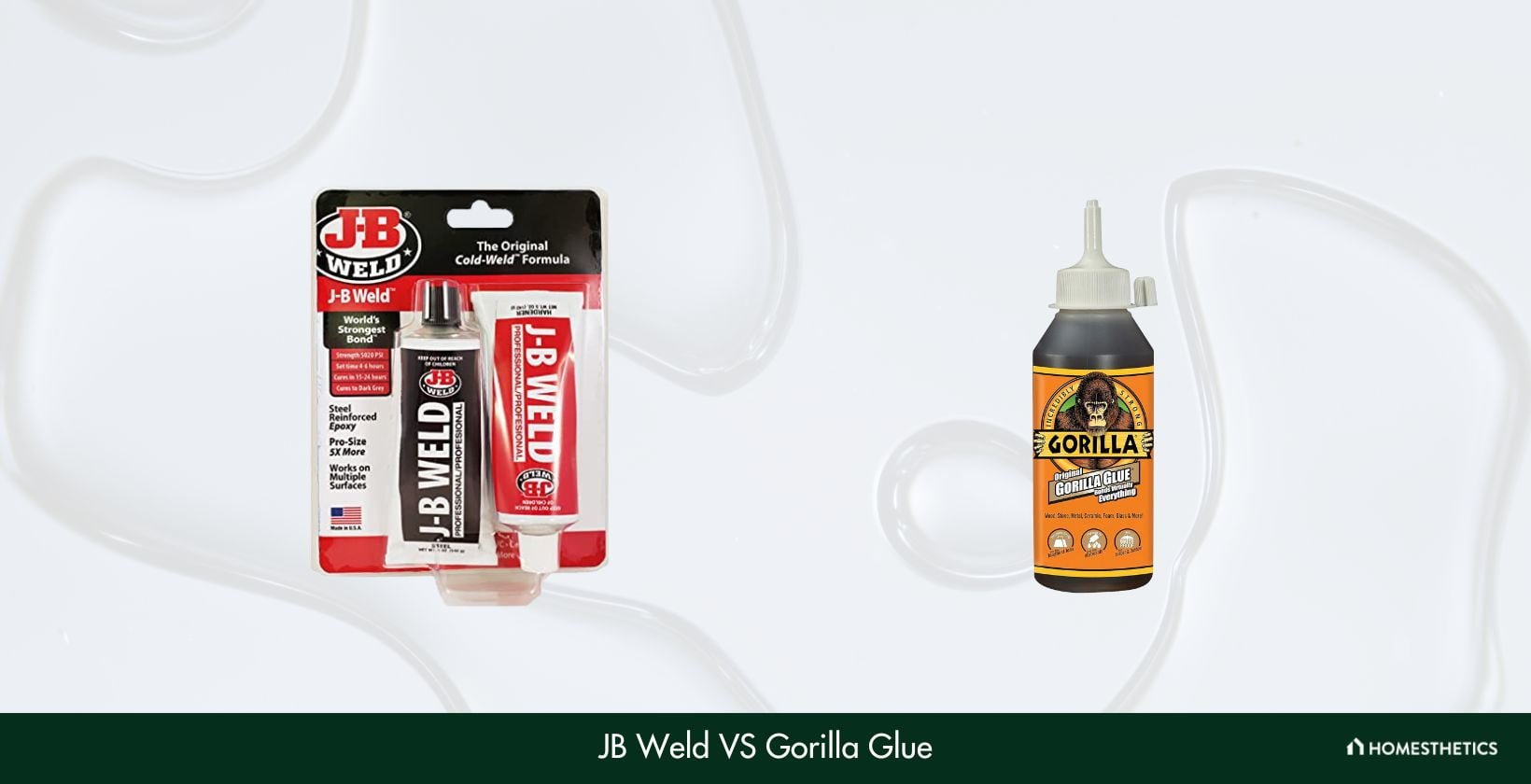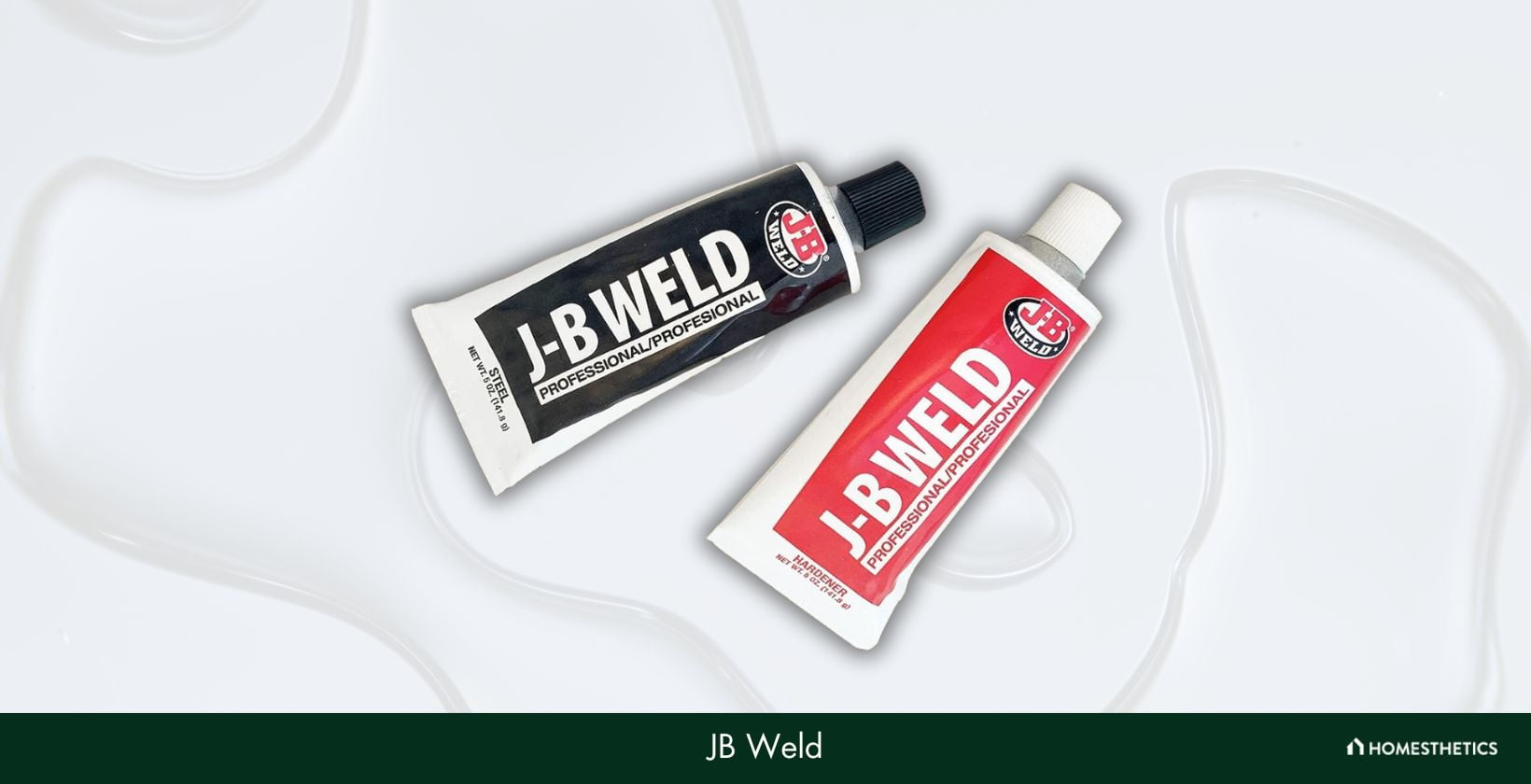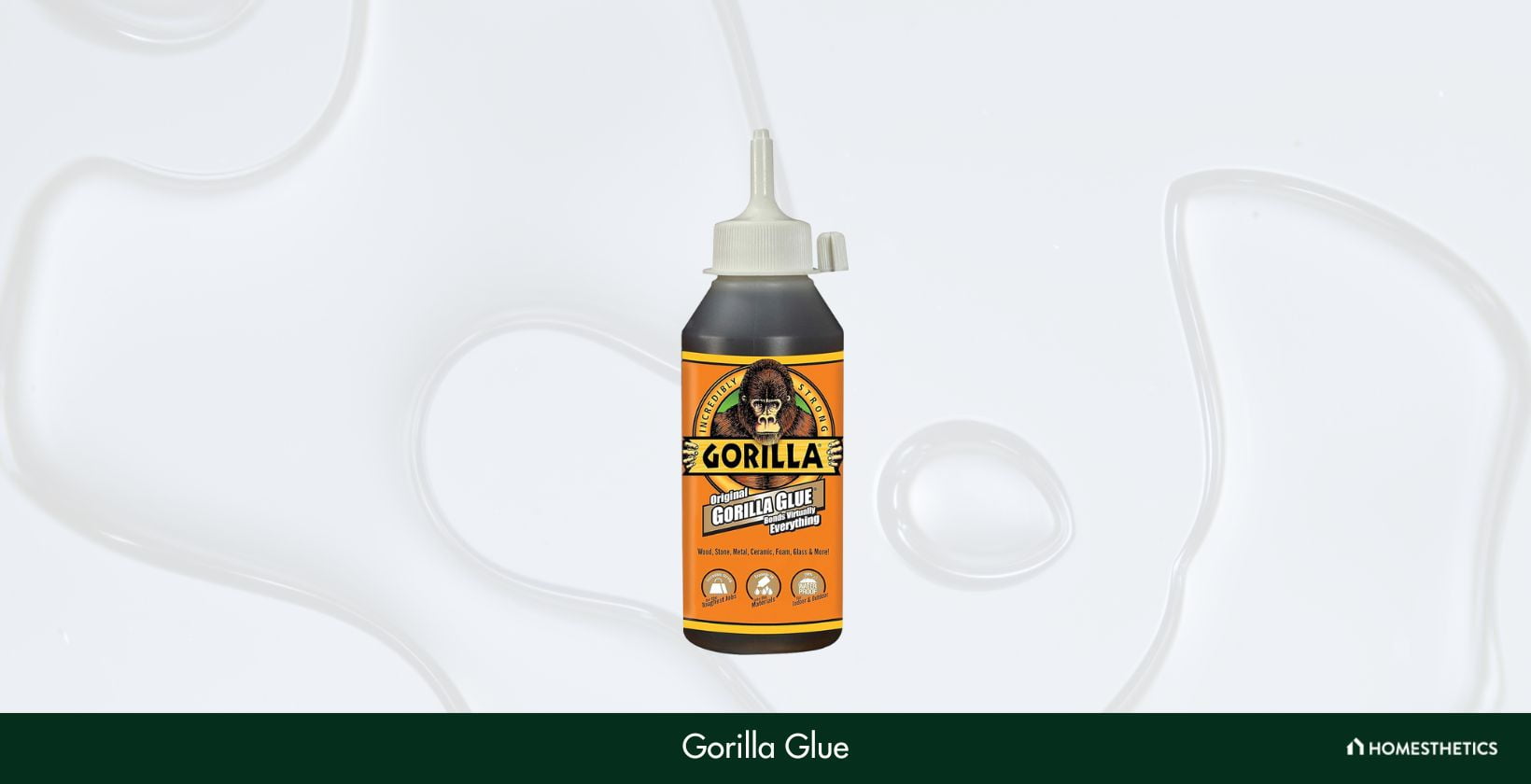Glues are a must-have item in every household as they can be applied to repair broken things in a jiffy.

However, with the availability of a ton of options on the market, zoning in on a single product can be quite challenging and time-consuming. That’s why we have tried to make the task easier for you by reviewing 2 products from the 2 best glue brands on the market.
Furthermore, we have provided an in-depth comparison between the two packs of glue to help accelerate your decision-making. So, without further chit-chat, let’s jump in and find out which glue holds better.
Read on to find out everything!
In this section, we’ll take a look at both the brands and their respective products in detail so that you can understand the fundamental difference between the two.
1. JB WELD 8281
For over 40 years, JB Weld has been manufacturing glues that hold firmly to a range of surfaces such as metal, plastic, and concrete in even the harshest environmental conditions. And naturally, the 8281 Twin Pack of resin and hardener is no different.
This two-part epoxy system was originally designed as an alternative to torch welding. So, it should come as no surprise that they offer extremely strong and lasting repairs to a wide variety of surfaces and produce a bond that’s even stronger than steel. Understandably, that makes it an ideal choice for craft, marine, DIY household, and automotive repair.
Additionally, when the two-part epoxy is mixed together, it forms a glue that takes 24 hours to cure, which is pretty decent, given it's not super glue. And the best part? Once it’s cured, it can be further drilled, molded, sanded, filled, and tapped. In other words, you can do whatever you please with it after waiting overnight.
Apart from this, the JB Weld glue is steel-reinforced, offering a tensile strength of around 5,020 PSI. Long story short, it is extremely durable and can withstand temperatures up to 550 degrees Fahrenheit without breaking a sweat. Not to mention, it is waterproof and resistant to acid, chemicals, and petroleum.
Now, as far as the application is concerned, you can apply it to a wide range of materials, including fiberglass, metal, concrete, wood, ceramic, PVC, and tile. And that’s why both the product and the brand have earned a loyal following from DIYers, repair professionals, and mechanics alike.
What We Like
- Forms a solid adhesive layer
- Can be used for bonding wood, metals, and other materials
- Ideal for gap-filling on porous surfaces and non-porous surfaces
- Heat-resistant
- Perfect choice for DIYers and professionals
What We Don't Like
- Takes a while to cure
2. Gorilla Glue 5002801
This company has been manufacturing high-quality glues for over 2 decades, and the 5002801 Original Gorilla Glue is yet another prestigious addition to its wood glue repertoire. Over the years, it has built a name for itself in the industry, primarily because of its outstanding versatility and holding power. Let’s learn a bit more about it in the coming sections.
Unlike other glues, this water-activated polyurethane expands into adhesive materials to create a strong bond that can adhere to virtually everything. Besides, it’s entirely waterproof and safe for use both outdoors and indoors. Rest assured, it can easily withstand the various weather elements quite conveniently.
Once cured, you can stain it, paint it, and sand it as per your requirement and give the project a completely new and finished look, which is great.
However, ensure that the surface is dampened and clean, tight-fitting, and dust-free before applying. And for shiny surfaces like glass, you need to sand the material a bit so that the glue holds onto it.
Since it’s water-resistant, it doesn’t break down when it comes in contact with moisture, which is truly remarkable. Needless to say, it is heat-resistant and can therefore withstand temperature in tough conditions.
Overall, this flexible glue is one of the top-rated and best gluing materials on the market.
What We Like
- Ideal for professionals and DIYers alike
- Expands to provide a long-lasting and powerful bond
- Can withstand extreme temperatures
- Easy to apply
- Can be used on a variety of materials like leather, plastic, wood, etc.
- Cures to a yellowish color
What We Don't Like
- Offers a limited shelf life once opened
In-depth Comparison: JB Weld VS Gorilla Glue
Now that you know what both the products are all about, it’s time we made an in-depth comparison between the two of them. So, let’s jump right in.
1. Cleanup
As far as cleanup is concerned, both products are known to give users a tough time. That is because both of them feature solid adhesive materials. Note that the Gorilla Glue doesn’t need to be mixed with 2 different materials before application.
On the other hand, you have to mix different components of JBL Weld, which naturally makes it messy. So, we think it’s safe to say that the former is relatively easier to clean away than the latter.
2. Strength
If you are looking for an option that provides unmatched strength, then the JB Weld could be your best bet as it has a higher tensile strength than Gorilla glue. On top of that, it’s way more resistant to weather elements, which is no less than a bonus in the books of those who intend to use glue outdoors.
However, this doesn’t mean that the Gorilla glue is weaker or susceptible to cracking or shrinking; it’s just that it is not as durable as the two-part epoxy JB Weld. Additionally, the bond formed by the JB Weld is difficult to break regardless of where it has been applied or prevailing weather conditions.
So, the winner here is JB Weld.
3. Materials
The JB Weld two-part epoxy is highly versatile and can bond a wide range of surfaces together, such as jewelry, beads, metals, plastic, fabrics, and wood. DIY enthusiasts and loyal followers of JB Weld often claim that it can bond all materials.
Gorilla Glue is a polyurethane-based glue, which means that it is mainly used to glue wood together. However, this wood glue can bond together with other materials, such as fabrics, paper, metals, and a few other materials.
4. Health Concerns
The JB Weld features a non-toxic formula, which means it won’t kill you if you happen to accidentally eat it. On the contrary, the Gorilla Glue is extremely toxic and can cause death if ingested. So, in this regard, JB Weld is the winner.
5. Applications
Now, let’s see how each product performs in terms of applications.
The JB Weld glue is mainly used for repairs because it has a tensile strength of over 5,000 PSI, which is a lot. On top of that, it is water-resistant, solvent-acid, and petroleum-proof, meaning it is an ideal choice for craft, marine, and automotive repairs. Additionally, it is temperature-resistant and can be sanded or painted as per requirements.
As far as the Gorilla Glue is concerned, it is a polyurethane glue mainly used to bond wood. So, when it comes to wood repairs and carpentry, it can deliver unparalleled results without a hassle.
That said, keep in mind that it can bond together with other materials; as such, you can use it for small repairs and arts and crafts projects.
6. Cost
The JB Weld glue is more expensive than Gorilla Glue since its quality is a notch higher than its counterpart. However, in the long run, JB Weld can help you save a good amount of money as you can use it in place of a screw when you need two lighter materials to be held together.
Speaking of Gorilla Glue, it is less expensive than JB Weld since it is not meant for heavy repairs.
Quick Recap
Now, let’s do a quick recap on the basic differences between the two products.
- JB Weld cures to a grayish color, whereas the Gorilla Glue cures to a yellowish color
- Gorilla Glue is polyurethane-based wood glue, while JBL Weld glue is a two-part epoxy
What will the JB Weld glue not stick to?
It will not stick or bond to any surface that’s rubbery or flexible. This is because it is specifically made to provide incredibly durable and long-lasting repairs on solid surfaces such as cars, ships, etc.
How long do I have to wait for Gorilla Glue to dry?
Even though it doesn’t take too long to dry, we strongly recommend that you wait for at least 24 hours before you sand or paint it.
That was pretty much everything you needed to know about JB Weld and Gorilla Glue.
Now, coming to the main question, which one is a better adhesive? For us, it has to be the JB Weld glue because it is more durable and safe to use than Gorilla Glue. And even though the price is a bit higher, this product can help you cut costs in the long run.
That being said, it’s important to note that the Gorilla Glue is not a bad glue by any means. If you are looking for an adhesive for wooden materials, you can’t go wrong by choosing the polyurethane-based Gorilla Glue.
So, that’s all for today; we hope this guide has helped you choose the right glue based on your requirements. Until next time, take care!


